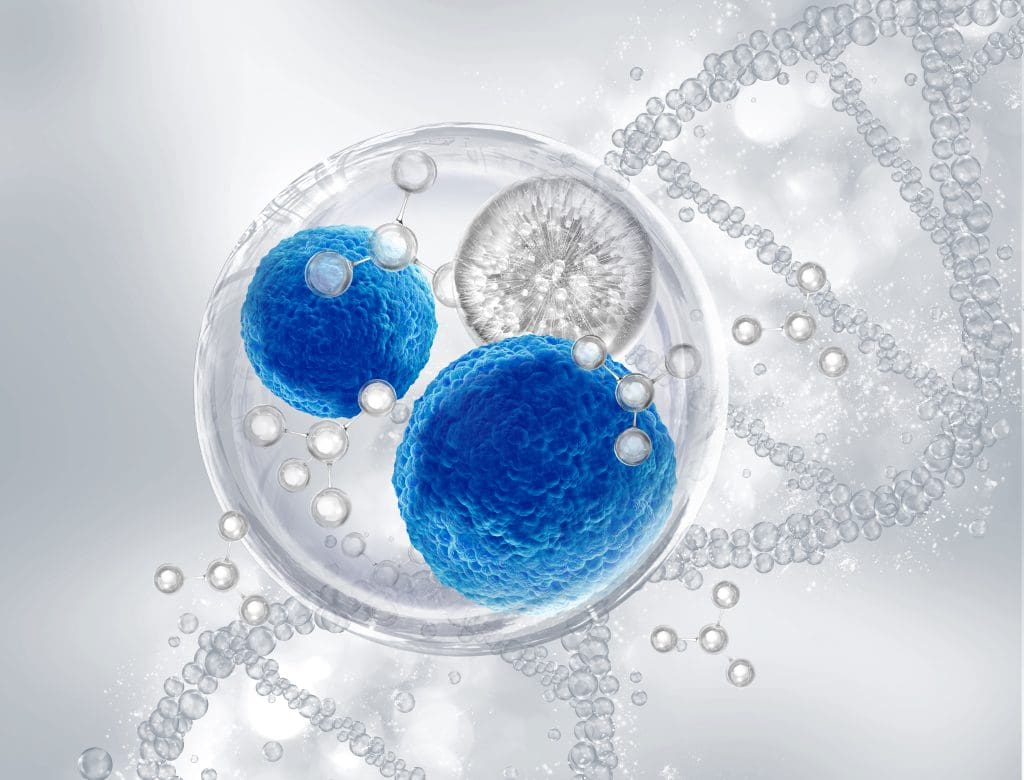Recent studies have found a surprising link between fasting and the growth of stem cells. This has sparked a lot of interest in its health benefits.
Fasting supports the body’s natural ability to regenerate cells. This is key for staying healthy and fighting off diseases. By looking into how fasting affects stem cell growth, scientists aim to find new ways to boost our health.
The benefits of fasting on our health are many. They include better cell regeneration and improved metabolic function.
Key Takeaways
- Fasting has been linked to increased stem cell regeneration.
- The process may contribute to improved overall health.
- Research is ongoing to fully understand the implications.
- Fasting benefits for health include enhanced cellular regeneration.
- Further studies are needed to explore the therapeutic potentials.
The Science Of Fasting And Cellular Regeneration

Fasting is now seen as a way to improve cell health and regeneration. This change in view comes from modern science. It shows fasting’s benefits for our health.
Historical Context Of Fasting Practices
Fasting has been around for centuries. It was used for spiritual, health, and social reasons. It was more than just not eating; it was a way to reflect, purify, and improve health.
Fasting has been important in many cultures. For example:
- Religious fasting: Many religions, like Christianity, Islam, and Buddhism, use fasting for spiritual cleansing.
- Therapeutic fasting: Some cultures believed fasting could cure or help with health problems.
Modern Scientific Understanding
Recent studies have uncovered how fasting helps our health. It triggers important cell processes like cellular regeneration and autophagy. These help keep cells healthy and promote long life.
Some important findings in fasting research are:
- Fasting starts cell cleaning, like autophagy, where cells get rid of damaged parts.
- It can make more stem cells, helping to fix and grow tissues.
- Fasting also improves how our body handles sugar and reduces inflammation.
Knowing about fasting’s history and science helps us see its benefits. It shows how fasting can help our cells and overall health.
Understanding Stem Cells And Their Regenerative Capacity
Stem cells are key to how our bodies fix and renew tissues. Fasting might boost this process. These cells can turn into different types, acting as our body’s repair team.
Types and Functions of Stem Cells
Types and Functions of Stem Cells
There are mainly two kinds of stem cells: embryonic and adult. Embryonic stem cells can become any cell type in the body. Adult stem cells, found in grown-up tissues, can’t change as much but help fix and keep tissues healthy.
Stem cells work by turning into specific cells to replace old or damaged ones. For example, blood cells come from hematopoietic stem cells in the bone marrow. Mesenchymal stem cells help make connective tissue.
How Stem Cells Contribute To Healing And Renewal
Stem cells are essential for healing and renewal. They provide new cells to replace those lost due to injury, disease, or aging. Their ability to become different cell types is vital for fixing tissues.
The power of stem cells to regenerate is complex. It involves many cell types and signals working together. Fasting might help by making more stem cells and improving their work.
Studies on fasting and stem cells are growing. They show fasting can help stem cell health and function. This could lead to new ways to support our body’s repair abilities through diet.
The Biological Connection Between Fasting And Stem Cell Activation
Recent studies have shown a link between fasting and stem cell activation. Fasting changes metabolism and hormones, affecting stem cells.
Metabolic Pathways Triggered During Fasting
When we fast, our body changes how it uses energy. It starts using ketone bodies as fuel, which helps stem cells work better.
Fasting also boosts autophagy, a process where cells clean themselves. This makes it easier for stem cells to activate and function.
Key metabolic changes during fasting include:
- Increased production of ketone bodies
- Upregulation of autophagy-related genes
- Enhanced cellular cleaning and renewal
Hormonal Changes That Influence Stem Cell Function
Fasting changes our hormones, which affects stem cells. For example, lower insulin and higher glucagon levels help grow stem cells.
It also changes cortisol and adrenaline levels. These changes can help or hinder stem cell function. Understanding these changes is key to seeing how fasting boosts stem cell activation.
The interplay between hormonal changes and stem cell activation during fasting is complex and involves multiple pathways.Hormonal changes during fasting that influence stem cell function:
- Reduction in insulin levels
- Increase in glucagon levels
- Changes in cortisol and adrenaline levels
Key Research Evidence: Does Fasting Actually Promote Stem Cell Growth?
Research on fasting and stem cell growth has found exciting results. Studies have looked into how fasting affects stem cell regeneration. This has given us insights into its possible uses in medicine.
Groundbreaking Animal Studies
Animal studies have been key in understanding fasting’s effects on stem cells. Studies in mice have shown that fasting boosts stem cell regeneration. This leads to better tissue repair and renewal.
A study in Cell Stem Cell found cycles of prolonged fasting in mice induced immune system regeneration by shifting hematopoietic stem cells from dormant to self-renewing states, but human clinical evidence is limited.
Another study showed fasting activates metabolic pathways (mainly fatty acid oxidation) in stem cells, which improved regenerative capacity in mice, but applications in human stem cell therapies remain under investigation .
Human Clinical Research Findings
Human studies are also important for understanding fasting’s effects on stem cells. Clinical trials are ongoing, but strong clinical evidence for safe and effective increases in human stem cell production via fasting is not established yet.
Preliminary human studies found short-term fasting cycles in chemotherapy patients supported immune recovery, but further research is needed for its effects on circulating stem cells and tissue regeneration. Another trial showed the fasting-refeeding cycle boosts stem and progenitor cell proliferation in mice intestines, while data on stem cell mobilization in humans is currently limited.
These findings from human studies, along with animal research, make a strong case for fasting’s benefits. More research is needed to fully grasp the mechanisms and explore fasting’s role in regenerative medicine.
How Fasting Triggers Autophagy And Cellular Cleanup
Fasting can start a natural process called autophagy. This process is key for cleaning and renewing cells. Autophagy is like a self-cleaning cycle that breaks down and recycles damaged parts of cells.
The Autophagy Process Explained
Autophagy is a critical process in cells. It breaks down and recycles damaged parts. This helps keep cells healthy and promotes renewal.
The autophagy process has several steps:
- Initiation: It starts with a double-membraned structure called a phagophore.
- Elongation: The phagophore grows and wraps around damaged parts.
- Maturation: It turns into an autophagosome, then fuses with a lysosome to form an autolysosome.
- Degradation: The autolysosome breaks down the damaged parts, recycling them for use.
How Autophagy Creates Space for New Stem Cells
Autophagy helps clean and renew cells. This makes it easier for new stem cells to grow. Stem cells are important for fixing and regrowing tissues.
Key benefits of autophagy for stem cell renewal include:
- It removes damaged parts, making room for new stem cells.
- It recycles cellular resources, giving new stem cells what they need.
- It keeps cells in balance, helping stem cells work their best.
Understanding how fasting starts autophagy helps us see its health benefits. It shows why fasting can be good for our overall health and well-being.
Intermittent Fasting Benefits for Stem Cell Production
Recent studies show that intermittent fasting can boost stem cell production. This is key for fixing and regrowing cells. It involves eating and fasting in cycles, which has many health perks, including more stem cells.
Popular Intermittent Fasting Protocols
Many fasting plans are popular for their ease and results. The 16/8 method is well-liked, where you fast for 16 hours and eat in an 8-hour window. The 5:2 diet is also popular, where you eat normally for five days and limit calories to 500-600 on the other two.
The Alternate Day Fasting method, where you alternate between eating and fasting days, is also promising. These plans are flexible, making it easy to find one that suits your life and health goals.
Effects on Stem Cell Mobilization and Function
Some animal studies suggest intermittent fasting may enhance specific stem cell activity and tissue repair, but more evidence is needed for stem cell release and function in humans. It triggers the release of growth factors important for stem cell movement. For example, it increases vascular endothelial growth factor (VEGF), which helps create new blood vessels.
It also improves stem cell work, helping the body fix itself better. This could lead to better health and lower disease risk.
- Enhanced stem cell production
- Improved cellular regeneration
- Better overall health outcomes
By trying different fasting plans under medical supervision, people may potentially benefit from improved metabolic and cellular health, although effects on stem cells require more evidence in humans.
Prolonged Fasting and Its Impact on Stem Cell Regeneration
Fasting is becoming more popular, and scientists are studying its effects on stem cell regeneration. Prolonged fasting in animal models impacts immune cell regeneration, with limited and preliminary evidence for similar effects on regeneration in humans
Extended Fasting Protocols (24+ Hours)
Extended fasting means fasting for 24 hours or more, sometimes up to 72 hours or longer with medical supervision. These long fasts trigger changes such as autophagy and metabolic shifts, which may support stem cell maintenance and regenerative capacity in animal studies. The body changes in ways that help make new stem cells during these fasts.
Key aspects of extended fasting protocols include:
- Enhanced autophagy, a process where the body recycles damaged cells and proteins, potentially creating a more favorable environment for stem cell regeneration.
- Increased production of certain growth factors that support stem cell production and activation.
- Reduced oxidative stress and inflammation, which can improve the overall environment for stem cell function.
System-Wide Regenerative Effects
Prolonged fasting does more than just boost stem cell regeneration. It has wide-ranging regenerative effects on the body, improving health and potentially increasing lifespan.
Some of the system-wide regenerative effects include:
- Improved immune function through the regeneration of immune cells.
- Enhanced cellular cleaning and renewal processes.
- Potential rejuvenation of various tissues and organs.
Understanding how prolonged fasting affects stem cell regeneration and overall health is key. It helps researchers and health enthusiasts see the benefits of extended fasting in their health routines.
Benefits of Fasting For Immune System Rejuvenation
Fasting is gaining attention for boosting the immune system. It involves not eating for a while, which helps the body focus on healing and renewing immune cells. This break from eating lets the body use energy for repair instead of digestion.
Immune Cell Renewal Through Fasting
Fasting starts a process called autophagy. It breaks down and recycles old or damaged cells and proteins. This renewal is key for a strong immune system, as it gets rid of cells that could harm the body.
Key findings on immune cell renewal through fasting include:
- Regeneration of immune cells: Fasting boosts the creation of new immune cells. This helps the body fight off infections better.
- Reduction of inflammation: Fasting helps clear out damaged cells and proteins. This reduces chronic inflammation, common in many autoimmune diseases.
Potential Applications for Autoimmune Conditions
These diseases happen when the immune system attacks the body’s own tissues. This can include conditions like rheumatoid arthritis, lupus, and multiple sclerosis.
Fasting’s impact in this area is promising:
- Modulation of the immune response: Fasting can help control the immune system’s reactions. This might lessen the severity of autoimmune attacks.
- Enhanced immune resilience: Fasting promotes the renewal of immune cells and reduces inflammation. This makes the body more resistant to autoimmune attacks.
Fasting is not a cure-all but can be a helpful addition to treatment plans. It’s important to talk to a healthcare professional before starting any fasting regimen, even if you have a health condition.
Fasting Benefits for Brain Health and Neural Stem Cells
Fasting is good for your brain. It boosts neurogenesis and improves thinking skills. Studies show fasting helps keep your brain healthy and sharp.
Neurogenesis and Cognitive Enhancement
Fasting helps grow new brain cells. This is key for learning and remembering things. It’s most important in the hippocampus, where memories and feelings are stored.
Research shows fasting makes more new brain cells in the hippocampus. This can make you smarter and lower the risk of brain diseases. It also boosts BDNF, a protein that helps brain cells grow and survive.
Neuroprotective Effects Against Aging and Disease
Fasting also protects your brain from aging and diseases like Alzheimer’s and Parkinson’s. It starts autophagy, a process that removes damaged brain cells.
- Fasting helps clean your brain cells, lowering disease risk.
- It makes proteins that protect brain cells from damage.
- Fasting can improve thinking and lower dementia risk.
More research is needed, but fasting looks promising for brain health. It boosts brain cell growth, thinking skills, and protects against brain diseases.
Fasting Benefits for Metabolism and Weight Management
Fasting can boost your metabolism and help with weight loss. It makes your body better at using fat for energy when you’re not eating. This can lead to lasting weight loss.
Metabolic flexibility means your body can easily switch between using glucose and fat for energy. Fasting helps your body get better at using fat for energy when you’re not eating.
Metabolic Flexibility and Fat Adaptation
When you fast, your body first uses glucose for energy. Once glucose runs out, it starts breaking down fat for energy. This is called lipolysis.
“Fasting is not just about losing weight; it’s about rejuvenating your metabolic system.”
Sustainable Weight Loss Through Fasting
Fasting helps you lose weight and keep it off. It makes your body better at using fat for energy. This helps you stay at a healthy weight over time.
Fasting also lowers insulin resistance, which is good for avoiding type 2 diabetes. When your body is better at managing blood sugar, you store less fat.
- Improved insulin sensitivity
- Enhanced fat burning capabilities
- Reduced inflammation
By fasting, you can see these benefits for yourself. It’s a healthy way to manage your weight.
Fasting Benefits for Longevity and Anti-Aging
Fasting is getting attention as a way to help people age healthily. It might slow down aging by changing how our cells and body work when we don’t eat.
Fasting starts many changes in our body that could help us age better. It makes our cells clean and renew themselves. This is called autophagy. It helps get rid of old or damaged cells, which could slow aging down.
Cellular Mechanisms of Aging Deceleration
Slowing down aging at the cell level is complex. Fasting helps in several ways. It:
- Makes cells more resistant to stress by fixing damage and protecting DNA.
- Improves how mitochondria work, which can make energy more efficient and reduce damage.
- Changes how our body reacts to inflammation, which is linked to aging and disease.
Stem Cells’ Role in Counteracting Age-Related Decline
Stem cells are key for keeping tissues healthy and regenerating. As we get older, fewer and less effective stem cells contribute to aging. Fasting can:
- Help stem cells grow back and work better.
- Make stem cells more resilient to stress and damage.
- Give stem cells a younger genetic makeup, which could help with better tissue repair and health.
Understanding fasting’s effects on stem cells and aging can show its value in fighting aging and promoting long life.
Practical Implementation: How to Fast for Stem Cell Benefits
Fasting can help grow stem cells, but it must be done safely and right. To get the most benefits, knowing the basics of fasting and its effects on stem cells is key.
Starting a Fasting Protocol Safely
Before starting any fasting plan, talk to a doctor, even if you’re healthy. A good fasting plan includes:
- Begin with short fasts (12-14 hours) and slowly increase time as you get used to it.
- Drink lots of water during fasting times.
- Pay attention to how you feel and adjust your fasting plan as needed.
- Make sure to eat well during your eating times to keep your health up.
“Fasting is not for everyone; it depends on your health and needs.”
Who Should Consider Fasting for Stem Cell Activation
Fasting can help many people, including:
- Those wanting to boost their health and wellness.
- People looking to strengthen their immune system.
- Individuals hoping to improve their body’s natural healing.
But, some groups should be careful or not fast at all, like:
- Pregnant or breastfeeding women.
- People with a history of eating disorders.
- Those with chronic health issues, like diabetes or heart disease, without doctor advice.
Knowing who can benefit from fasting and how to do it safely helps support stem cell health and overall well-being.
Conclusion: The Future of Fasting in Regenerative Medicine
Fasting is becoming a key player in regenerative medicine. It has shown promise in boosting stem cell growth and improving health. Research finds that fasting can start autophagy, a process where cells clean out old parts to make room for new stem cells.
The future looks bright for fasting in regenerative medicine. Scientists are diving deeper into how fasting affects stem cells and the immune system. This could lead to new ways to use fasting for healing.
Fasting could be a big deal in the future of health. It might help make more stem cells, improve how our bodies work, and even help us live longer. More studies are needed to know all its benefits and limits. But so far, it seems like fasting could be a powerful tool for staying healthy.
FAQ
Can fasting renew immune cells and help manage autoimmune conditions?
Limited animal studies suggest that prolonged fasting cycles may support regeneration of some immune cells by triggering stem cell activity, but strong human clinical evidence for managing autoimmune conditions is not established. Anyone considering fasting for immune health should consult a qualified medical professional first.
Does fasting enhance metabolic flexibility and support weight loss?
Fasting can help with metabolic flexibility and may contribute to weight loss by encouraging the body to shift from burning glucose to burning fat during fasting periods. However, these effects vary by individual, and fasting is not appropriate for everyone; medical guidance is recommended before starting.
Who should consider fasting for stem cell activation?
Those looking to improve health and stem cell growth may consider fasting. But, pregnant or breastfeeding women and those with specific health conditions should consult a healthcare professional before starting.
Can fasting improve mental clarity and energy levels?
Some people report increased mental clarity and energy during fasting, which may relate to shifts in metabolism and certain signaling molecules. However, scientific studies on this effect in humans remain limited, and more research is needed.









